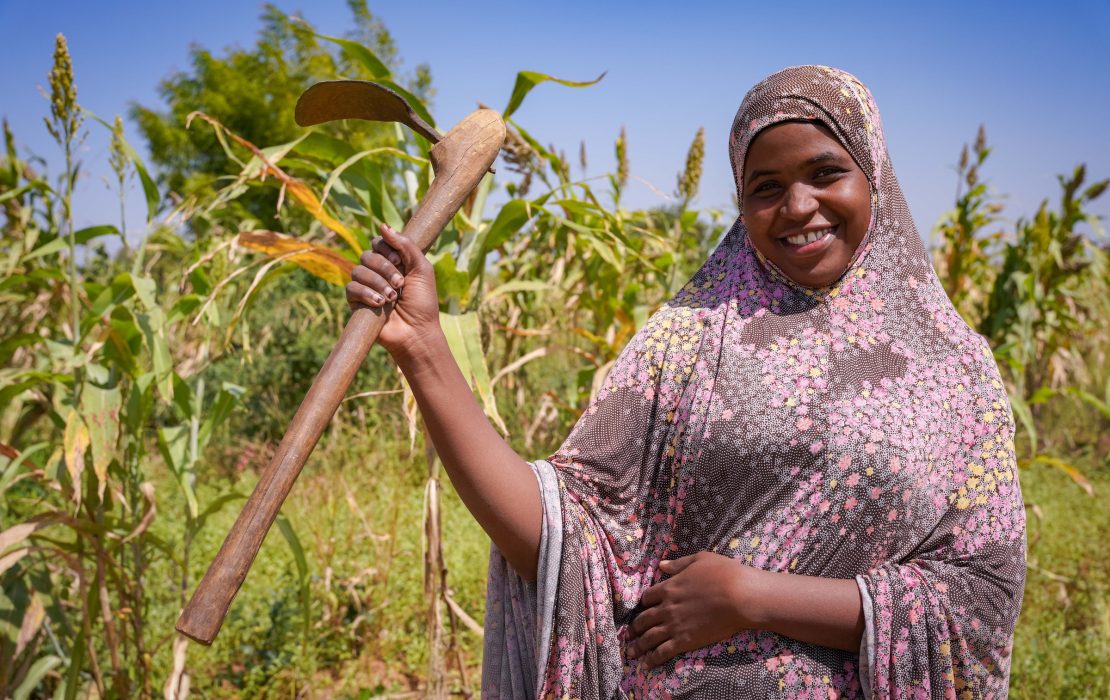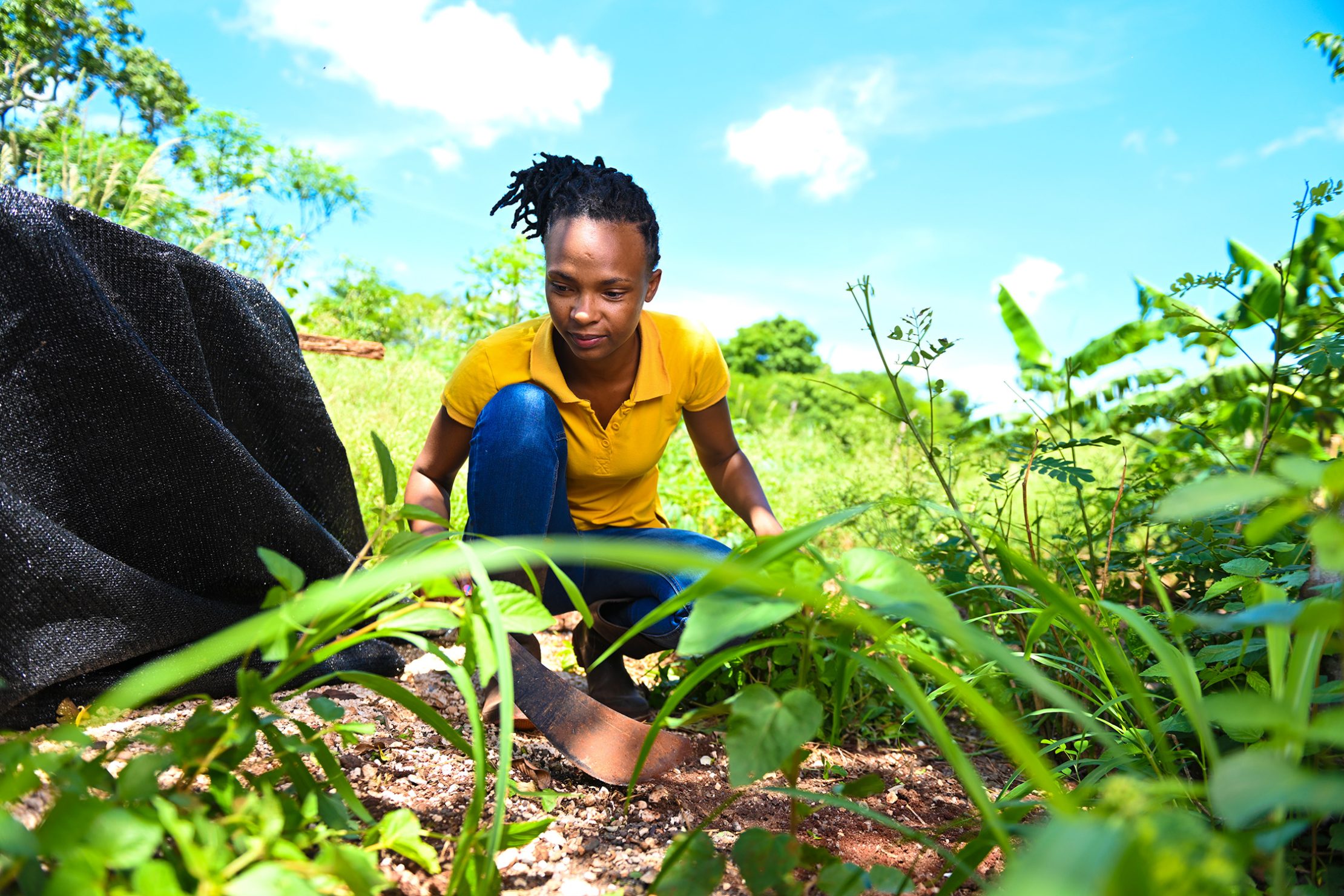
Photo: UNDP Jamaica
With a vibrant culture, stunning landscapes and a rich marine world, Jamaica is a popular touristic destination. Tourism directly employs 175,000 Jamaicans and supports the livelihoods of another 354,000, being a cornerstone of the local economy, together with farm agriculture and fisheries.
However, as climate change intensifies, Jamaicans are seeing their livelihoods threatened. Like other Small Island Developing States (SIDS), Jamaica is highly exposed to climate change impacts, such as more frequent and more intense storms and hurricanes, longer droughts and sea-level rise. In 2024 alone, Hurricane Beryl affected 45,000 farmers, damaged around 8,700 houses, and affected livestock and fisheries, causing an estimated economic loss of US$6.5 billion. The economic impacts compound Jamaica’s challenges of historically high levels of public debt and dependence on fossil fuel imports to meet energy and transport demands.
Sea-level rise, caused by global warming, is another increasing threat. Residents along coastlines, 82 percent of whom live within five miles of the sea, are expected to see 26 to 82 centimeters sea-level rise by 2100. This is expected to impact the majority of the population as well as the country’s tourism infrastructure, which is generally located along the coast. Jamaica is also projected to experience more frequent and severe droughts, with experts forecasting up to 40 percent increase in drought conditions by 2080, jeopardizing water security.
In response to these challenges, the Caribbean country is taking proactive steps to address its vulnerability to climate change and achieve its vision of developed country status by 2030. These ambitious plans are contained in Jamaica’s Climate Change Policy Framework and its Nationally Determined Contribution (NDC), which outlines its national climate pledges under the Paris Agreement.
From efforts to achieving a just transition of the workforce to a green economy, to investing in renewable energies and unlocking climate finance opportunities for a green future, UNDP is supporting Jamaica to take decisive climate action.
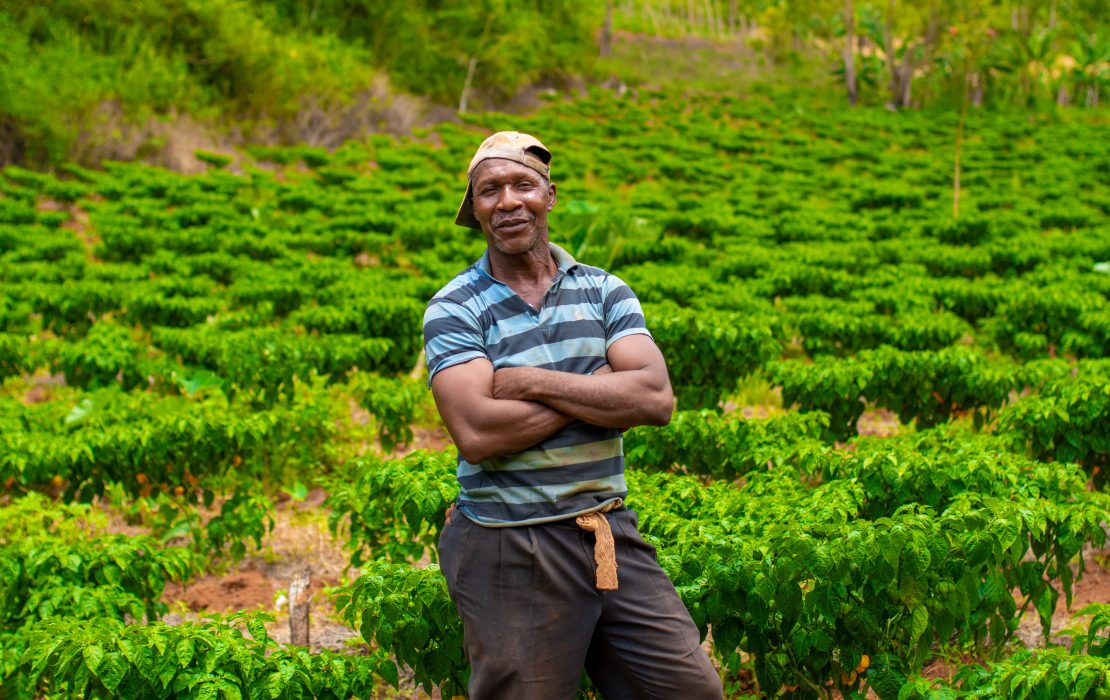
Tourism, combined with agriculture and fisheries, is a cornerstone of Jamaica's economy. But as climate change intensifies, Jamaicans are seeing their livelihoods threatened.
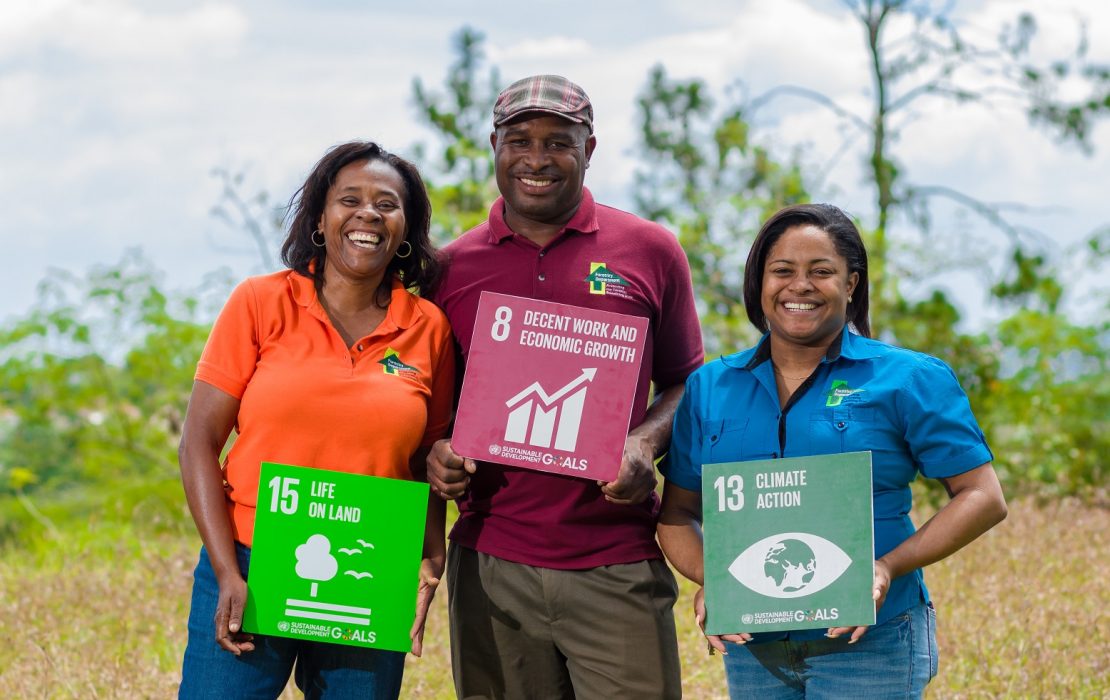
From efforts to achieving a just transition of the workforce, to investing in renewable energies and unlocking climate finance opportunities, UNDP is supporting Jamaica to take decisive climate action.
Focusing on green growth
As the country works to reduce fossil fuel imports and invest in sustainable energy, decent work and social justice, UNDP has been working with the International Labour Organization (ILO) to support the Government of Jamaica in reimagining an economy based on green and sustainable jobs, industries and technologies, otherwise called a green growth scenario.
Under this collaboration, a national Green Job Assessment Model was created to assess the social, employment and economic impacts of employing green growth scenarios based on implementing its current climate plans. The assessment shows that, in addition to the benefits related to cutting greenhouse gas emissions and dependency on fossil fuels, a green future could also positively impact GDP, generating up to 7,500 new jobs, 0.6 percent more than in the business-as-usual scenario, including more jobs available for women and youth. It also projects that a green growth approach can increase household income, alleviate poverty and put the economy on a higher and diversified growth path. At the same time, it could build Jamaica’s resilience to climate change and external shocks, including climatic extremes and price hikes of fossil fuels.
The assessment therefore recommends that policy makers in Jamaica consider a growth model which accelerates the shift towards renewable energy, green industries and technologies, climate resilience, and climate-smart agriculture and tourism. International financial support is crucial for such a sustainable transition, especially for developing economies like Jamaica, and could have the effect of easing fiscal burdens, attracting private investment and fostering local capacities.

A green growth approach can increase household income, alleviate poverty and put the economy on a higher and diversified growth path.
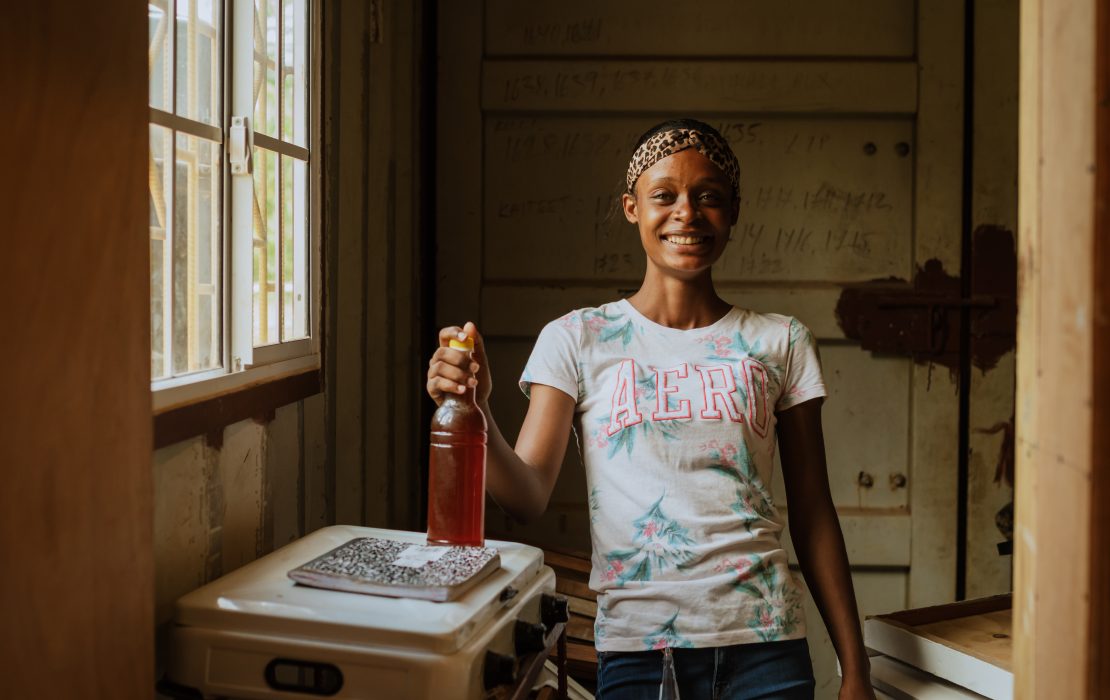
A green future could also positively impact Jamaica's GDP, generating up to 7,500 new jobs, including more jobs available for women and youth.
Scaling up renewable energy capacities
In 2018, Jamaica set a target to reach 50 percent renewable energy in its energy mix by 2030. However, as of 2021, the share of renewables in total energy consumption was around 7 percent, representing 12 percent of the energy generated in the country (not imported, like fossil fuels).
The country has taken measures to increase renewables and reduce dependency on fossil fuels, including expanding wind farms, building solar farms and introducing electric buses for public transport.
As part of this transition, the Centre for Advance Research in Renewable Energy, on the University of West Indies (UWI) Mona campus in Kingston, Jamaica’s capital city, became the first net-zero building in the Caribbean in 2016. The building was established with funding from the Global Environment Facility and technical support from the UN Environment Programme.
This building, designed for energy efficiency, is powered by onsite renewable energy and is run by a smart energy management system. The building’s design and orientation are optimized for natural ventilation, reducing the energy demand. It also has a water management system that reuses gray water, derived from bathroom sinks and washing systems, for non-potable uses, such as irrigation.
The building serves as a model of energy efficiency, demonstrating smart building technologies that can be replicated across Jamaica and other countries. The data generated by the building is used by students in their own research and helps graduates gain more awareness about the possibilities of renewable energy.
UNDP helped retrofit UWI’s net-zero building by upgrading its 20 kW solar photovoltaic systems, HVAC air conditioning units and inverter battery. These upgrades were critical to support the tracking of greenhouse gas emissions data, facilitate training and research, and improve the storage of energy, especially for cloudy days.
The Centre for Advance Research in Renewable Energy, on the University of West Indies Mona campus in Kingston, Jamaica’s capital city, became the first net-zero building in the Caribbean in 2016.
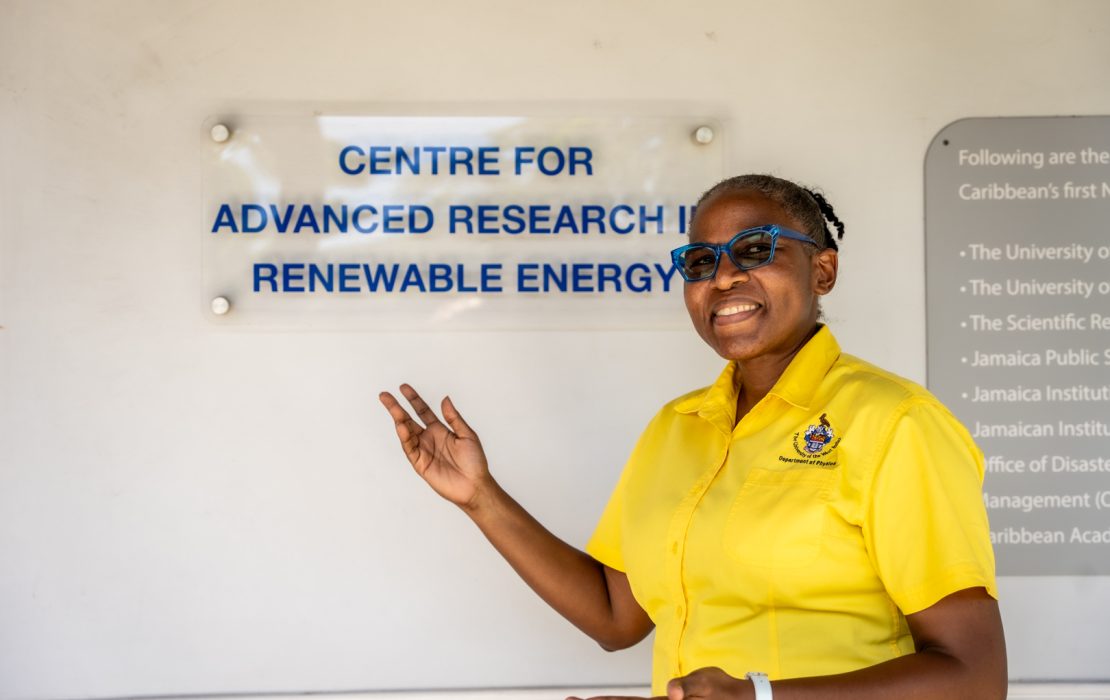
The net-zero building serves as a model of energy efficiency, demonstrating smart building technologies that can be replicated across Jamaica and other countries.
Unlocking climate finance through green bonds
Financial resources are essential for implementing the plans and projects needed to address climate change and build climate resilience. In 2024, the Jamaica Stock Exchange developed the Green Bond Plus, a platform for trading and issuing green, social, sustainability and sustainability-linked bonds.
The Green Bond Plus platform is designed to support the Sustainable Development Goals and the goals of the Paris Agreement, enhancing the capacity of the financial sector to provide financing and governance for renewable energy, green industries and climate-smart agriculture. It serves as a hub for issuers, asset managers and investors committed to driving positive change through sustainable finance.
In preparation for the historic launch of Jamaica’s first green bond, UNDP has supported the Jamaica Stock Exchange deliver a series of workshops on Environmental, Social and Governance (ESG) standards and market education sessions with participants from the private and public sectors. These sessions helped equip stakeholders with the tools and understanding needed to integrate ESG principles into investment and reporting frameworks, aligning them with global standards.
By fostering dialogue among regulators, issuers, investors and sustainability experts, this partnership has enhanced Jamaica’s market readiness for green financial instruments, raising awareness about the benefits and opportunities of green finance.

In preparation for the historic launch of Jamaica’s first green bond, UNDP has supported the Jamaica Stock Exchange deliver a series of workshops on Environmental, Social and Governance standards.

By fostering dialogue among regulators, issuers, investors and sustainability experts, UNDP supports Jamaica’s market readiness for green financial instruments.
A plan to invest in a sustainable future
To align national development with climate resilience and low-carbon growth, the Government of Jamaica submitted its second NDC in 2020 and is planning to submit its third in 2025.
At the same time, the country developed a comprehensive Long-Term Strategy (LTS). The LTS complements the NDC by providing a long-term vision for sustainable, low-emission development through 2050. It builds on national priorities outlined in Vision 2030 Jamaica and incorporates international obligations, proposing a strategic pathway for a sustainable future. The strategy emphasizes a just transition, economy-wide resilience, and inclusive growth.
To meet the targets set in the NDC and LTS, adequate, predictable and sustainable finance is essential. Jamaica is now developing a financial investment plan for the LTS, providing a roadmap for translating strategic climate goals into implementable and costed interventions.
The plan identifies financing needs and gaps and proposes mechanisms to mobilize resources effectively from both domestic and international sources. It also includes recommendations for hard interventions, aimed at deploying physical infrastructure and technologies – such as renewable energy systems, electric vehicle charging networks and improved waste treatment facilities – as well as soft interventions, including capacity building, institutional strengthening, policy and regulatory reforms and community-based programmes designed to foster awareness, enable behavioral change and promote inclusive development.
Together, these interventions aim to create a strong foundation for economic transformation, catalyze foreign investment and strengthen Jamaica’s resilience to climate change impacts.
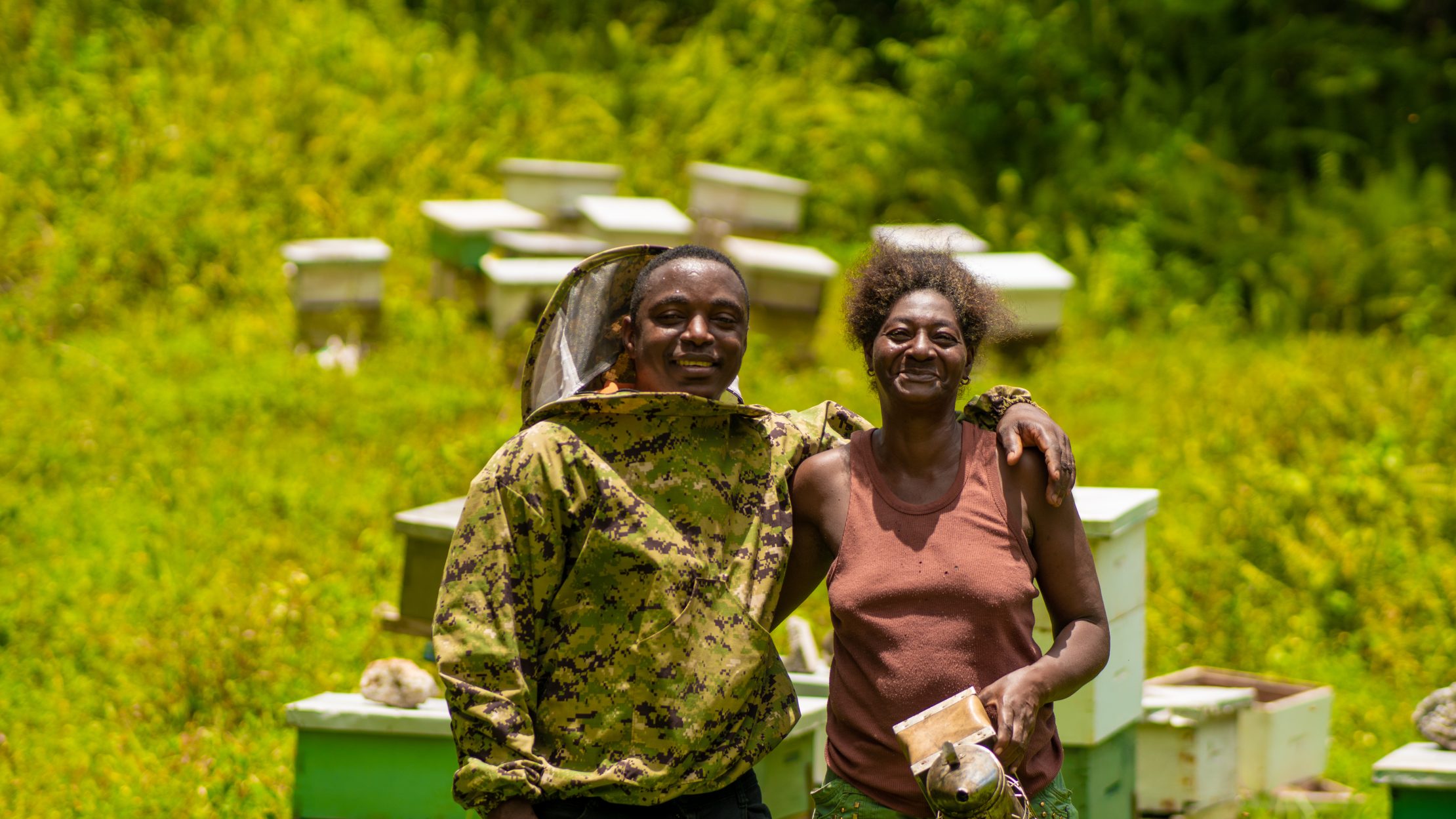
Jamaica's Long Term Strategy provides a long-term vision for sustainable, low-emission development through 2050 and emphasizes a just transition, economy-wide resilience, and inclusive growth.
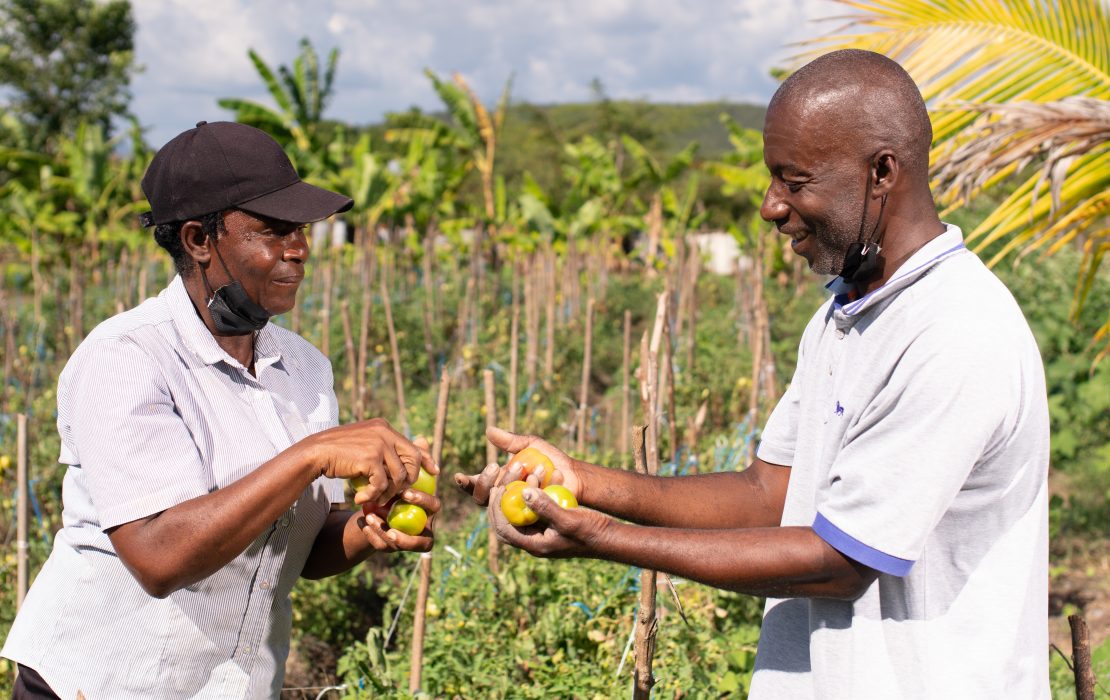
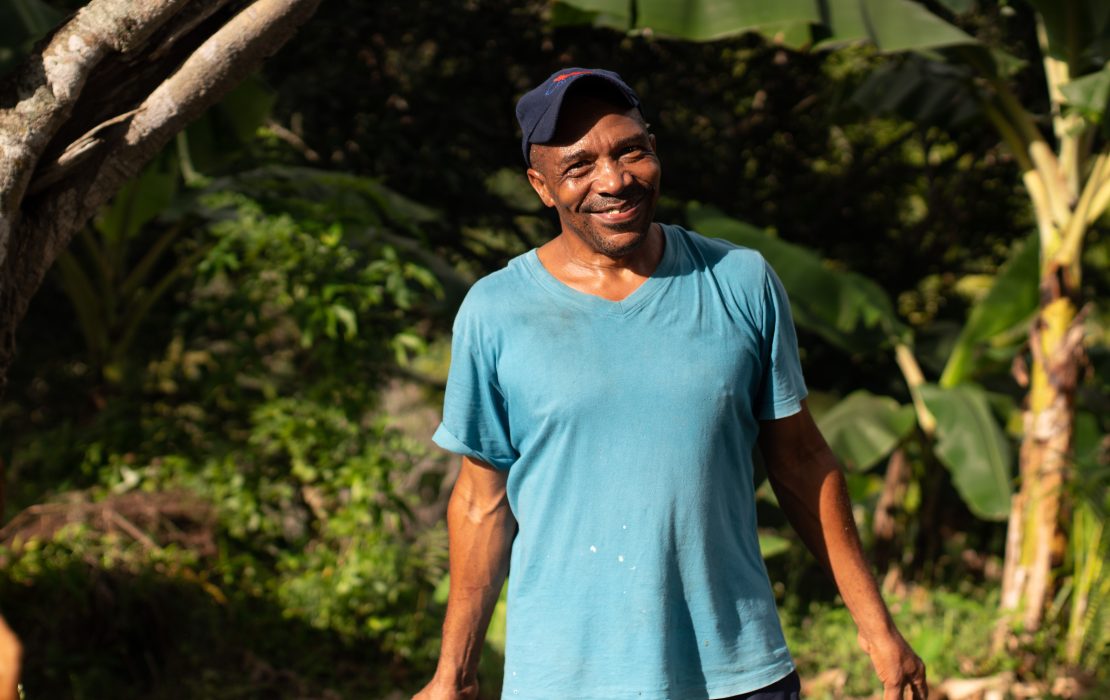
*
Through UNDP’s Climate Promise Pledge to Impact initiative, UNDP in Jamaica is harnessing the power of partnerships to advance climate action through its coordination with different divisions across the Government of Jamaica, including the Climate Change Division of the Ministry of Economic Growth and Job Creation, the University of the West Indies, and the Jamaica Stock Exchange.
Delivered in collaboration with a wide variety of partners, UNDP’s Climate Promise has supported over 120 countries to enhance and implement Nationally Determined Contributions (NDCs) under the Paris Agreement. Pledge to Impact is generously supported by the governments of Germany, Japan, United Kingdom, Sweden, Belgium, Spain, Iceland, the Netherlands, Portugal and other UNDP core contributors. This programme underpins UNDP’s contribution to the NDC Partnership.
The UNDP Multi-Country Office in Jamaica engaged the International Labour Organizationto lead the execution of the Green Job Assessment Model exercise. This initiative was implemented with strong collaboration and support from key national partners, including the Climate Change Division of the Ministry of Economic Growth and Job Creation, the Ministry of Labour and Social Security, the Planning Institute of Jamaica, the Statistical Institute of Jamaica, the University of the West Indies, the Jamaica Confederation of Trade Unions, the Jamaica Employers Federation, HEART Trust/NSTA, and the Forestry Department.
